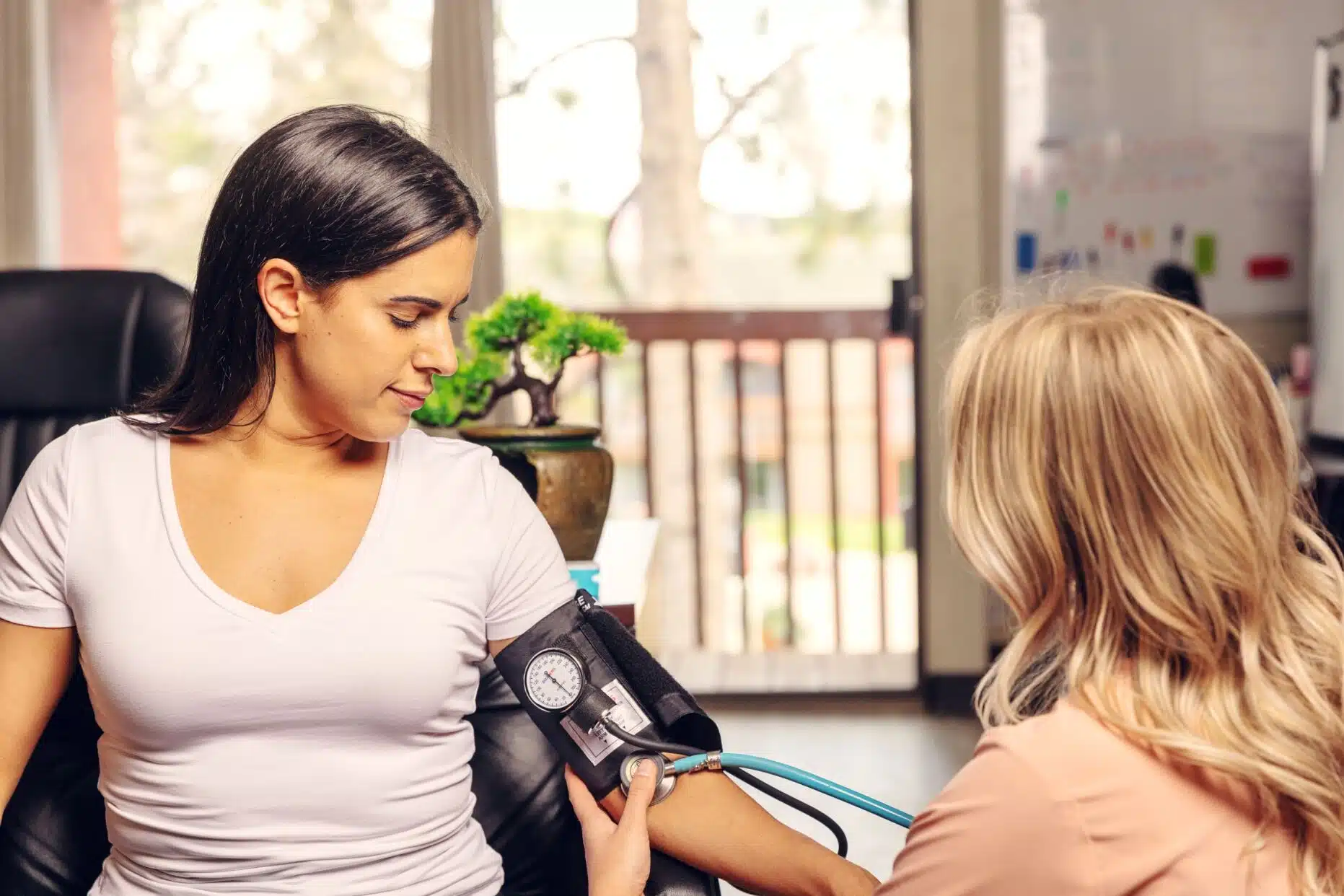Substance use disorder rates are generally lower in women compared to men, however, women who abuse substances often face greater risks than men who exhibit the same behaviors.
Drug and alcohol abuse have a greater impact on women’s bodies due to their biology. Gender roles and expectations present other challenges for women.
There is an oft-cited unofficial 13th step surrounding 12-step programs. In brief, it’s where someone who’s been in recovery for a long time tries to have a relationship with someone new to the program. This might act as a roadblock for someone looking for early recovery.
Those are a few key reasons why a female-friendly or female-only sobriety group may more effectively help women abstain, by providing a safe space to heal and address women’s unique needs.
Sobriety for Women
The problem of addiction is hardly rare among females. In 2017 the Substance Use Disorder and Mental Health Services Administration (SAMHSA) reported that 19.4 million (or 15.4 percent) of women ages 18 and older had used illicit — illegal or non-prescription — drugs within the last 12 months.
Drinking and drug abuse can put women in precarious situations, putting them at greater risk for sexual or domestic violence.
Women also tend to have their own unique motivations for using drugs, including:
- To lose weight
- To battle tiredness
- To control pain
- To self-treat/self-medicate mental health issues
Females face unique challenges with drug and alcohol misuse. Compared to men, they can become addicted when using smaller doses and can become addicted in less time.
Alcohol makes its way into the bloodstream almost right away, it doesn’t matter whether the drinker is male or female. Typically the effects appear within 10 minutes, but women can feel it faster. Drugs affect them differently, and the cravings may be more intense. Women may also be more likely to relapse.
Drug use can affect hormones, fertility, periods, pregnancy, breastfeeding, and menopause.
Sex hormones can make women more sensitive to the effects of drugs and alcohol. That, paired with the fact that females are generally smaller than males, can put women at greater risk for a trip to the emergency room or an overdose.
Drugs and alcohol also tend to affect women’s hearts and blood vessels more than men’s. In addition, traumatic life events and major upheavals can raise the likelihood of developing substance use, including:
- Death of a child or partner
- Divorce
- Being the victim of domestic violence
- Losing custody of a child
A woman may be more prone to panic attacks, anxiety, or depression, too, which can in part be triggered by misusing substances, or she may abuse substances as an unhealthy coping mechanism. Women face their own unique stigmas also.
In the past, women were not necessarily welcome in all-male turf. The first Alcoholics Anonymous (AA) meetings, which started in 1935, were attended only by men. At the time, people simply did not view women as alcoholics, so the idea of women and sobriety meetings was an alien one. For a woman to have a drinking problem was unseemly and unnatural, a moral failing. Talk to a Intake Coordinator
Take The First Step Towards Recovery
Women in Sobriety Organizations
Alcoholics Anonymous and other 12-step organizations have groups that offer women-only options. Then there are entities created for women and women alone to attend.
One such group is Women for Sobriety. The nonprofit was founded in 1975 by sociologist Jean Kirkpatrick, Ph.D. with the intention to help women recover from substance use disorders (SUDs) and support women and sobriety.
Instead of using 12 steps, Women for Sobriety has a New Life Program with 13 acceptance statements. Unlike AA and other 12-step groups, the organization does not require members to rely on a higher power. The organization focuses on personal growth and developing individual responsibility instead. Kirkpatrick told Newsweek in 1991 that a woman “already dependent on alcohol, on her husband, on everything but herself” may find in AA that “she develops new dependencies, on a sponsor, on a higher power, on going to meetings for the rest of her life.”
Jean Kirkpatrick had tried AA, but it didn’t work for her, so she took inspiration from the writings of Ralph Waldo Emerson, specifically his essay, “Self-Reliance.” By changing her thinking, she found she could change herself.
This sobriety society helps women pinpoint and handle the issues that led to their substance use disorder. The focus is on alcohol and drug abuse. Other addictions are generally not addressed.
Women for Sobriety meetings are held in the United States and Canada. Typically members gather weekly, sitting in a circle (ideally there are six to 10 women, but some groups are larger). Names and brands of alcohol or drugs are not mentioned, and neither are stories of using drugs or drinking. That keeps the focus more on recovery while being less potentially triggering.
Group members also learn to address the problems their substance use created. Positive reinforcement, cognitive approaches, meditation, relaxation, exercise, and group participation all help produce shifts in behavior.
Women for Sobriety meetings regularly focus on one of the organization’s 13 acceptance statements, and most center on personal responsibility.
For example, statement four states: “Problems bother me only to the degree I permit.” Statement 13 says: “I am responsible for myself and for my actions.”
Members introduce themselves and state that they are competent women. Attendees have the opportunity to seek feedback or help.
Meeting participants introduce a topic that is typically pulled from Women for Sobriety writings, and a discussion follows. After that, the group members typically join hands and end on a positive note, stating that they’re caring, capable, and competent, and are in the same position as they overcome their addictions.
Talk with one of our treatment specialists . Call 24/7: 949-276-2886
Sources
Medical disclaimer:
Sunshine Behavioral Health strives to help people who are facing substance abuse, addiction, mental health disorders, or a combination of these conditions. It does this by providing compassionate care and evidence-based content that addresses health, treatment, and recovery.
Licensed medical professionals review material we publish on our site. The material is not a substitute for qualified medical diagnoses, treatment, or advice. It should not be used to replace the suggestions of your personal physician or other health care professionals.






